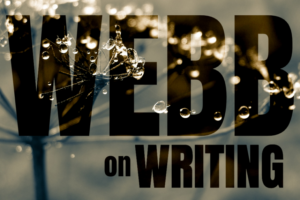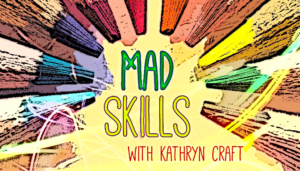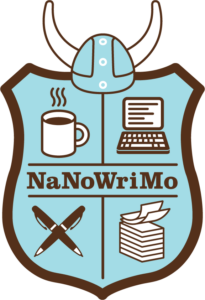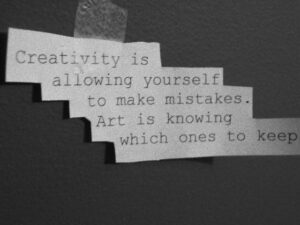Inspirations
Who among us is without fear? Dumb question, really. I’d argue that fear is one of the single most formative emotions in our lives from infancy to death. It’s what paralyzes us or stunts our growth…or it’s what motivates us. We use it to shape our characters and to make their lives hell as they seek their greater truths and higher selves. But it’s also the emotion that infuses our daily lives as writers. This season in which we celebrate fear, I talked with some authors to find out what it is that frightens them as writers and what they do to silence the negative voices. This is what they had to say:
“I’m afraid that my readers will see right through me and figure out the plot by the third page. But then I remind myself that has never happened, and often some of the things I think are obvious come as a total surprise to the reader. It’s a reminder to me to trust my intuition.”-Crystal King, author of Feast of Sorrow and The Chef’s Secret
“My biggest publishing fear is never getting published again! As difficult as it is to get published in the first place – and it IS difficult – I often feel like the actual hardest thing is CONTINUING to publish once you’ve done it once, or even a few times. So many of the factors that go into a publisher’s decision to buy my book (or any book) are completely out of my control: market trends, how well my previous books have sold, what else that publisher has acquired recently, etc. Every time I publish a book I worry that it could be my last, which would be devastating since I love making books and bringing them to readers. But I try to combat this by meditating on what I really love about the writing itself. Publication may be out of my control, but the words themselves aren’t, so I try to focus on that as much as possible. If I can take joy and satisfaction in the work itself, in the stories I’m telling, the rest fades to the background. It is easier said than done, but I try my best!”- Alyssa Palombo, author of Heavy Metal Symphony and The Borgia Confessions
“I have carpal tunnel that’s somewhat manageable right now, but I’m afraid of the day when doing the thing I love hurts too much. I’m trying to get better about speech to text, so when it becomes too hard to type I can do that. But I do a lot of things to combat the problem now — I try to eat anti-inflammatory foods, I wear braces on my wrists, I use ergonomic keyboards and mice, and I also use other therapies like hand/wrist massage and paraffin wax dip. But fears in writing? I can give list fears all day long. I guess I’m like any other writer: I’m afraid readers will hate my work. I try to remember that not every book is everyone’s cup of tea, and that no matter what, I will please someone, even if it’s just myself. I also lean on my writer friends. Having a good network of people who […]
Read MoreAll writing is a form of storytelling, so if you are puritanical about genre, this is the point where you should clutch your pearls and look away. The stark grocery list stuck to the refrigerator door is the skeleton outline of its author’s desire. It promises a plot (a trip to the store); characters (the list maker, the hero who treks to the store, store clerks and cashiers and inattentive customers); conflict (what if there are no vine-ripe, organic, locally sourced heirloom tomatoes?); setting (pristine kitchen, packed parking lot, labyrinthine rows of cans and jars); and any number of themes and symbols (the Siren song of the cookie aisle, empty shelves, and banks of crisp, glistening greens). Can you understand now how the desire for that perfect Tinga de Pollo lies tacit in the stark outline scribbled on a scrap of paper and stuck with a magnet to the refrigerator door?
Organize the list, add to it a series of imperatives (chop, toss, stir, drizzle), and it becomes a recipe, another tacit story about a cook and what and whom she loves. Insert the recipe, along with a few other favorites, into a story of two young, star-crossed lovers, and it becomes the novel, Like Water for Chocolate, the recipes reinforcing aspects of Laura Esquivel’s story: the role of women in a patriarchal family, the expression of love (familial and erotic) through cooking. Squint and the novel becomes part sociological treatise (a story about Mexican society at the end of the nineteenth century). Squint again and it is a historical narrative (a story about the Mexican Revolution). Esquivel’s novel is a fable, an epic, another example of magical realism, the critics sputtered. They want desperately to classify it, which is a little like killing something in order to possess it.
Historians are novelists who feel a near religious devotion to the factual elements of the stories they tell, confessing their slightest detour into the realm of inference as if they committed a deadly sin. Naomi Oreskes and Erick Conway are both historians of science, yet the confounding problem of how to communicate the rapidly accelerating pace of climate change turns them into iconoclasts.
Genres are useful as long as you are willing to shatter the icons you worship. Consider Oreskes and Conway’s opening sentence, its clauses perfectly balanced, encapsulating the full arc of their story in a manner reminiscent of Dickens: “Science fiction writers construct an imaginary future; historians attempt to reconstruct the past.”
One sort of writer looks forward and the other back; one puts things together, the other takes things apart; and both want to understand the present moment.
Oreskes and Conway imagine how a “future historian” writing in the year 2393 from somewhere in the Second People’s Republic of China might struggle to understand how a civilization as brilliant as the West could also be so bloody stupid, how “[k]knowledge did not translate into power.” The plot of the “future historian’s” story is our collapse. The story, however, “essays” (tests, tries) itself, offering factual answers extrapolated from scientific data.
What does the “future historian” conclude about us?
Read MoreA good writer can transform any idea into a captivating, intriguing story. In writing, masterful execution can compensate for a mediocre idea.
You couldn’t say the same about book cover design as it’s, first and foremost, a marketing tool.
A proper cover should target a book’s genre, cater to your target audience’s preferences, and intrigue the viewer. A good idea — the main pillar of an effective cover design — helps achieve that.
So
As a writer, you have two challenges:
Here at MiblArt – book cover design company, we can help you with both challenges.
If you ever struggled with a book cover idea or were unsure about the ones you have, we can provide you with ideas and consulting for free.
MiblArt team works with any fiction and nonfiction genres and has already helped dozens of authors get the covers that do their books justice.
As for the book cover design itself, we offer
Take a look at the cover examples we have recently done.
We want to help you get the book cover you’ll love. And if you need help with a book cover idea, feel free to contact us
Get cover idea or consulting for free
What’s the most challenging thing for you during the book cover design process? Share your thoughts in the comments below!
Read MoreLately I have been obsessed with the quote (typically wrongfully attributed to Albert Einstein) that “insanity is doing the same thing over and over again and expecting different results.” By this definition, I’m bonkers and have been for quite awhile. I suspect a significant proportion of writers would count themselves in that same category.
I write every day. Sometimes for minutes, sometimes for hours. Always with the hope that my fingers on the keyboard will produce brilliant prose that is well plotted, action-packed, full of micro-tension, and emotionally rewarding. And every day I write passages that aren’t.
That adds up to a lot of days accumulating a lot of unsatisfactory results while expecting better. And yet I keep at it.
It is significant to this struggle that the above quote is also linked to addiction therapy, which defines a repetitive behavior (even non-substance behaviors) as an addiction when it is a misuse–when the repeated actions create harmful effects. Should writing be considered an addictive behavior? If so, what is the harm in writing?
For me, the harm is that sitting at the computer and judging my words creates a sense of inadequacy, the feeling that the imperfections of my daily writing mean that I am not up to the task of making the words match the story I want to write. The focus is on what I write, not the process.
Admittedly some days are better than others. Some days I can get just the right tone or dialogue for at least a scene or two. Other days I stare at the screen in frustration, sometimes even deleting passages. This is when that quote starts to whisper bad tidings in my ear, suggesting that what I call perseverance is really just living in a made-up land of crazy.
But every once in a while, something clicks and the characters take over and the story flows, carrying me along. Hours pass. Magical, joyous hours during which I experience the writing as if it commands me, not the reverse. Invariably, the passages I write during those moments of flow are keepers. Often they form the lens by which I learn how to take the writing I did on other days and transform it from dreck into tolerable, sometimes maybe even good prose.
I can’t control when those good days hit. Can’t schedule them in. (If I could, there would be a lot more of them). But I have noticed a pattern.
Read More
Warning: Hacks for Hacks tips may have harmful side effects on your writing career, and should not be used by minors, adults, writers, poets, scribes, scriveners, journalists, or anybody.
National Novel Writing Month (sometimes referred to as “NaNoWriMo” or “November”) is just around the corner, which means it’s time to fool yourself into thinking you can write your literary opus in a mere thirty days. That’s a lot of work, especially considering you’ve got a lot of eating to do on Thanksgiving and a lot of mall doors to bust down on Black Friday. I know you can do it, though. In fact, you can finish your novel in November easily by using one weird trick. You see, NaNoWriMo is much easier if you take a shortcut, by which I mean, take a longcut: start your novel in early October and pretend you wrote it in only thirty days.
That’s right, I want you to cheat.
Welcome to NaNoCheatMo!
Here’s how to do it:
There are many good reasons to participate in NaNoCheatMo, including but not limited to:
Read MoreI used to think I wanted to be a full-time writer – that there would be nothing more wonderful than having the expanse of a day, day after day, to write. But the thing is, when I happen to have a lot of time on my hands, I do anything but write. I will clean until the cows come home, work out, or spend time with friends and family. But I will not sit down and crank out words. Case in point: I lost my job a couple of months ago. Suddenly I had a lot of time to just write if I wanted to. But I was expecting a baby and there was a ton of stuff to do to get ready for her. I barely wrote, even though I wanted to turn in a new draft of a middle grade manuscript to my agent. I spent my days cleaning baseboards, sanitizing doorknobs, and washing baby clothes.
Three weeks before my due date, however, I got the urge to write. I printed out pages, marked them up and made edits, and typed up the changes. I read through the MS again and made more edits based on my agent’s notes. I turned a revision in a few days later. It turns out when I’m pressed for time is when I make time to write.
The ironic thing is, when I was working full-time, I was able to squeeze writing in at a more manageable pace. Get up a half hour early to edit some pages? Sure. Write after dinner for twenty minutes? Yes! So why can’t I focus when I have ample time to write?
I think it’s a combination of things. Fear of failure is one. My middle grade manuscript is one that’ll eventually be on submission. I hope it goes somewhere and if it doesn’t, I know I’ll be disappointed. I start to wonder, how many manuscripts should I write before I throw in the towel? Am I wasting my time doing this? If I fail, was it all for nothing?
Read MoreThe first time I saw the Great Wall of China, it was on the front of a postcard my dad had sent from a business trip. I kept that postcard with the others in my bedside table drawer where I’d reach for them nightly, feasting my eyes on Holland’s colorful tulip fields and wooden windmills. The Eiffel Tower’s slender silhouette at sunset. England’s storybook thatched cottages. I’d flip through images of faraway lands, wondering what it felt like to stand in each place. Imagining the sound of their languages and the flavors of their food. I may not have known what I wanted to be when I grew up, but I knew what I wanted to do: travel.
For me, traveling has never been about luxury hotels or fine dining (though I appreciate both every now and then), it’s about knowing that the air in Athens, Greece smells like oranges. That the Pitjantjatjara people of the Central Australian desert snack on honey ants. That there is a group of yogis in Burlington, Vermont, who meet at the Sailing Center dock every morning for sunrise Vinyasa surrounded by Lake Champlain’s soothing blue water. It’s about stepping out of my daily routines and habits to surprise my senses by observing infinite variations of what it means to live.
As a writer, exploration and discovery are kindling for my creative furnace. I didn’t fully appreciate the magnitude of travel’s influence on my creativity until it was taken away during the pandemic. It took the monotony of my wake-work-binge-watch routine to realize that my confinement and dulling flame were inextricably linked.
Of course, this dynamic is neither unique to me nor a novel concept. The connection between travel and creativity has long been examined by artists and scientists alike. And while the relationship seems undeniable, I was curious how those experiences translated to the page. So, I recently connected with some of my fellow Writer Unboxed contributors and community members to find out how travel has influenced their work. Today, I’m sharing the insights I’ve learned from their experiences.
Traveling Helps Us Remember the Forgotten
The opportunity to see a new place may inspire us to book a trip, but often it’s the stories rooted in their landscapes that stay with us long after we return home. Chilean writer Isabel Allende, who’s known for creating imaginative stories around significant historical events, once said, “Write what should not be forgotten.” In this way, travel has been a source of inspiration for historical fiction writer Erika Robuck, author of The Invisible Woman, opening her eyes to the contributions and struggles of women who have been all but forgotten by history.
“I’m sensitive to atmospheric nudges, the way an old house or city trembles for one to notice a story it holds,” said Erika. “The first that influenced my writing was my visit to the Hemingway House, in Key West. As I walked the grounds, I was overcome by a desire to set a story there. When I returned home, a dream where Ernest Hemingway urged me to write the novel set my course for Hemingway’s Girl,” which brings Hemingway to life through the eyes of Mariella Bennet, a fictional character […]
Read More
I’m at a writing retreat this week and it just occurred to me how often I’m asked about where to go or how to set one up on your own. As a writer, retreats are one of my very favorite things. I get to be away from the family and all of the real-life responsibilities for several days, and relish in taking care of only myself. I get to dig in to my writing uninterrupted, with lots of space to let my mind wander and process my story elements. When I go on retreats with others, I’m often inspired to try new techniques or styles or types of stories. My friends help me untangle a mess in my plot or with a character I’ve been grappling with, and I do the same for them. I also allow for a little fun on the side. It sounds like heaven, right?
There are many ways to make a retreat work for you from pre-arranged sessions to creating your own. Let’s take a look at how to make the most of it.
Pre-arranged Retreats
Scope out the location: Is it drivable or will you need to fly? Is the environment conducive to being productive? This should be a careful consideration. For example, when I retreat near the beach during warmer temperatures, it’s mighty tempting to abandon my writing and spend the day on the beach. For this reason, I often do a beach location during cooler temps. This way, I can walk on it every day during breaks, but I’m not tempted to completely abandon my work and play instead. The same applies to going to a city I’d love to explore more. I don’t want to be pining for adventure while I’m supposed to be getting in my word count. But perhaps these things don’t tempt you. Be honest with yourself about locations that will help you be productive.
Look into what’s included: Obviously you want as much included as possible. Some places will include all meals, others will include just a handful but have other great amenities. Read the fine print so you can plan your budget accordingly.
Decide whether you want programming (i.e. retreat leaders and workshops): Sometimes programming can be terrific and just the sort of inspiration you need to galvanize your writing. I like both kinds of retreats. It just depends on where I’m at with a current manuscript. There are also lots of smaller retreats led by writers or editors that can be just as fantastic as a larger, more established event. Ask your friends, post to forums or group pages, or consult any writing groups you may belong to for suggestions of where to retreat.
Residencies can also be a great way to retreat but often require an application process or extended stay.
A few I know of that are great
Rocky Mountain Fiction Writer’s Association hosts a retreat every March in Colorado Springs on a beautiful campus with mountains as a backdrop. It’s lead by a pro who presents craft talk as well as reads a sample of your work. There’s also a workshop component. Food and lodging is included. You don’t need to be a […]
Read MoreAll right fine, two decades later, I’ll admit it. Back in grad school I may have been a little overeager. Probably a lot overeager. While most of my fellow MFA candidates approached the program with an enviable amount of cool, professional detachment, I was about as cool and detached as a sugar-crazed toddler running wild through Disneyland.
In my defense, I’d spent my entire life up to that point surrounded by non-writers. In grade school and high school, my aspirations to someday become a novelist made me a favorite of English teachers, but a curiosity to my classmates. In college, my best friends were business and finance majors. The first bits of my post-undergrad adulthood were spent in cubicles writing advertising for insurance companies and government contractors.
And then, suddenly, there I was, in a Washington, DC suburb called Fairfax, VA at George Mason University, and I was literally surrounded, for the first time, by people like me. They’d read the books I’d read. They knew the authors I knew. Like me, they’d put their real lives on hold to forgo logic and reason and study the art of make believe. My enthusiasm to be there among them was simply uncontainable. Which is why when author Susan Shreve asked if anyone wanted to volunteer to have their story workshopped first my hand went up as if it’d been launched by a t-shirt cannon.
I looked around. Mine was the only arm raised. “Um, yeah,” I said. “I’ve got a story ready, I guess.”
At that stage of my career, I hadn’t really learned about drafting and rewriting yet. So, when I said I had a story “ready,” I actually meant “done.” Although I may not have admitted it, as far as I was concerned the thing was good to go. I mean, I’d spellchecked it and everything. You can imagine my surprise a week later when I sat and listened to that same room of fellow writers absolutely tear my “finished” story to pieces. I won’t belabor the details, but when the workshop was over I considered calling campus security and reporting that I’d been murdered.
As part of the curriculum, writers were entitled to one-on-one conferences with our professors after our stories were workshopped. When I arrived at Susan Shreve’s office a few days later, I was still reeling from the beating I’d taken. Seriously, I’m pretty sure I was noticeably limping.
“So, how do you think it went?” Susan asked.
This struck me as an unnecessarily casual question, like a firefighter asking, So, did you enjoy the dumpster fire?
I told Susan I was bummed. I told her I thought the story was good and that my classmates had treated me and it unfairly. “I feel like they just…they just didn’t get it, you know,” I said.
Susan was quiet for a moment. Her expression was sympathetic, nurturing. A seasoned author and teacher, she’d been handling the egos of dejected writers for decades. However, when she finally spoke she did so firmly. “Matt, it’s your job to make them get it.”
I’ve been given so much advice in my life, on writing, relationships, auto maintenance, finances. For better or worse, the vast majority of that advice has immediately bounced off my forehead and gone crashing […]
Read Morephoto adapted / Horia Varlan
Cliff-hangers and nail-biters aren’t the only ways to keep readers turning pages. When you develop their inherent conflict, quieter, almost insignificant-seeming moments can successfully produce an itch in your reader that only reading on will effectively scratch.
Here are some of the many ways that can be achieved.
1. Someone fakes it
From the time we are born, we are acculturated in a way that allows us to function in a family (don’t bite your brother, even if you want to) and in society (don’t bite your neighbor or sleep with his wife, even if you want to). Showing our characters “faking it” to override baser urges adds layers of interest to our characters by raising questions about why they might be doing that.
In Silver Linings Playbook by Matthew Quick, our protagonist, Pat, is trying to control a tendency toward violent outburst that caused a need for an institutionalized “apart time” from the locus of his all-consuming affection, Nikki. Pat is grooming himself for winning Nikki back through a maniacal devotion to exercise and adherence to optimistic platitudes learned from his friend Danny at a locked psychiatric facility. In this scene, back home in Philadelphia and released to his mother’s care, Pat is seeing his brother for the first time in three years.
You look like Arnold Schwarzenegger.” He feels my bicep, which I absolutely hate because I don’t like to be touched by anyone except Nikki. Since he’s my brother, I don’t say anything. “You’re frickin’ ripped,” he adds.
I look at the floor, because I remember what he said about Nikki—I am still mad about that—and yet I am also happy to see my brother after not seeing him for what feels like forever.
“Listen, Pat. I should have come to see you more in Baltimore, but those places freak me out and I…I…I just couldn’t see you like that, okay? Are you mad at me?”
I am sort of still mad at Jake, but suddenly I remember another one of Danny’s lines that is too appropriate to leave unsaid, so I say, “Got nothin’ but love for ya.”
That Pat feels both anger and love, simultaneously, is the kind of inner conflict that makes him seem real. It also makes the scene buzz with tension. We’ve already experienced a scene in which Pat tears up his psychiatrist’s office because Kenny G came on the radio. Here, when he must quote a friend to clamp down on his true feelings, the reader wonders: Will his desire to end apart time from Nikki be enough to keep him in line, or is Pat once again going to blow?
2. The setting exudes conflict
In these passages from Colson Whitehead’s The Nickel Boys, a bright student named Elwood is catching his first glimpse of the reform school he’s been sentenced to for a crime he didn’t commit.
Read MoreWarning: Hacks for Hacks tips may have harmful side effects on your writing career, and should not be used by minors, adults, writers, poets, scribes, scriveners, journalists, or anybody.
Enjoying your long Labor Day weekend? I sure as hell hope not.
Writers labor on Labor Day. This is the weekend you’re going to regain all the writing momentum you’ve lost. No matter how far behind you are on your goals, you’ll be amazed at how easy it is to convince yourself that you can atone for it all if you really buckle down over a weekend that is one whole day longer than any other weekend.
Does this sound unrealistic? I’m sorry, but it’s time for some tough love. You’ve spent the last year and a half making excuses like these:
I’ll bet you think that you deserve a break now, huh? The long Labor Day weekend has arrived not a moment too soon, you say, and you finally have a moment to catch your breath.
You fool. You rube. Writing is your break. This is your purpose, your calling, remember? You want rest and relaxation? The best way to “relax” is spend the “rest” of your time off hammering out 5,000 words a day to make up for all that you didn’t get done while you were trying to hold it together.




















